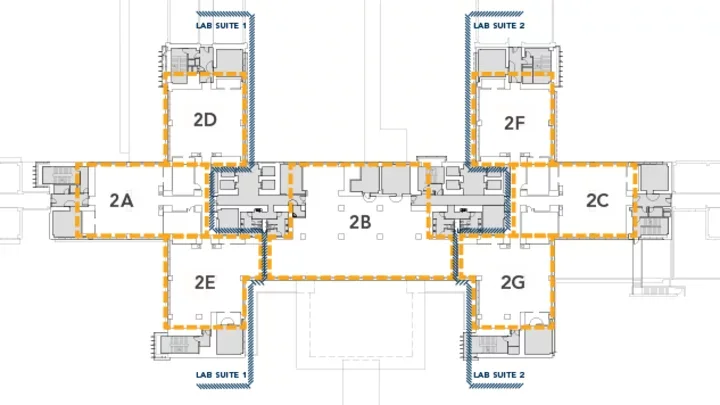Mission & Leadership
The Energy Of Life Goes Through The Mitochondria

The UCLA Metabolism Theme is a David Geffen School of Medicine initiative that aims to facilitate campus wide interdisciplinary research in the field of metabolism involving basic, clinical and industry collaborations. The team, led by Dr. Orian Shirihai, seeks to understand how metabolic pathways contribute to human disease and how they can be harnessed for diagnosis, prevention and therapy.
Resetting Metabolic Processes
UCLA Metabolism Theme investigators and physicians have ideas and evidence about how metabolic processes can be reset in some disorders, potentially creating pathways for improved treatments and possible cures.
Some of this work includes:
- Type 2 diabetes: Doctors might treat Type 2 diabetes without the use of insulin by “turning down” the rate at which glucose leaves the liver and enters the blood – like lowering the volume on a radio dial. Left unchecked, the “volume” of metabolic problems can creep up. This louder volume increases the workload of the insulin-secreting cells in the pancreas, ultimately leading to their collapse. Learn more about UCLA research into obesity and type 2 diabetes.
- Obesity: By convincing mitochondria to burn food fuel and not store it in the form of fat, doctors might be able to reduce obesity. Remarkably, reducing fat storage will help prevent problematic glucose deployment from the liver. We’re working to understand genes and metabolic disorders.
- Neurological diseases: Helping mitochondria repair themselves may protect brain cells. Find out more about research into metabolism and mitochondria.
- Cancer: Investigators believe it will be possible to deprive cancer cells of the food they need to survive, while tweaking the fuel supply to modulate an out-of-control immune response. Explore more about cancer metabolism.

Obesity & Type 2 Diabetes
Obesity and Type 2 diabetes – are metabolic disorders. Both are related to food: Obesity is connected to excessive body fat accumulation, and high blood sugar is connected to diabetes.
Learn more

Mitochondria
Mitochondria, the parts of a cell that break down energy, have a breathtaking vitality, researchers say. Trillions of mitochondria perform their dances, nonstop, during a person’s lifetime.
Learn more

Cancer Metabolism
At UCLA, with our strong focus on both metabolism and cancer, researchers are solving the mechanisms by which cancer tweaks cell metabolism.
Learn more
“We are trying to understand whether it is possible to make tissue prefer one nutrient to another. This process could help stem obesity, a condition that affects more than one-third of American adults.”
Contact Information
Theme Contact Information:
Phone: (310) 825-9163
Contact via email
Core Contact Information:
Phone: (310) 825-8630
Contact via email
Giving Contact Information:
Phone: (310) 418-2364
Contact via email
Located in the newly renovated South Tower of the Center for Health Sciences.
The Metabolism Theme space at the CHS South Tower has been designed in a joint effort between architects and engineers at UCLA, as well as two outside firms, both of whom worked closely with the Theme and the PI of each lab.
Mailing Address:
UCLA Center for Health Sciences
10833 Le Conte Ave (at UCLA)
Los Angeles, CA 90095
